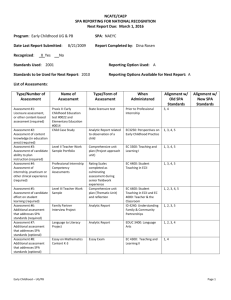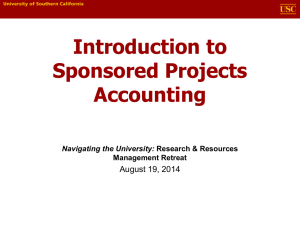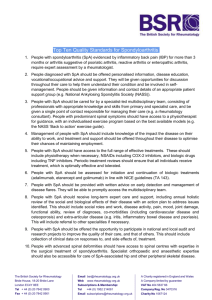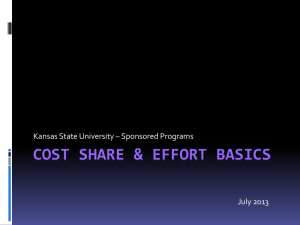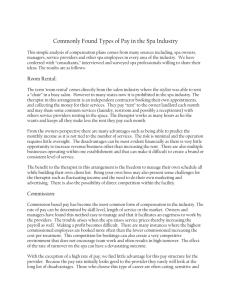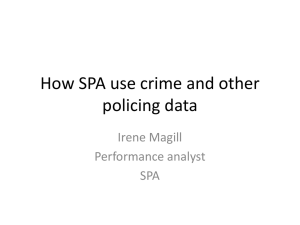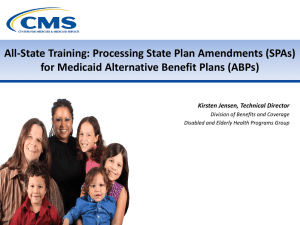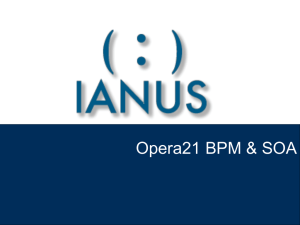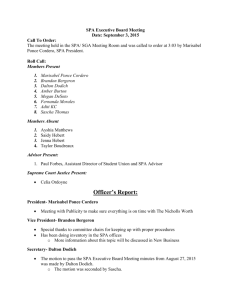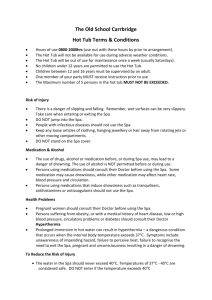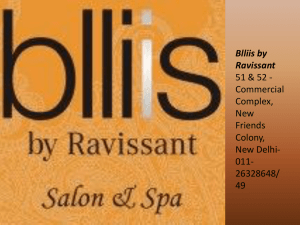Working arrangements for consultant anaesthetists
advertisement
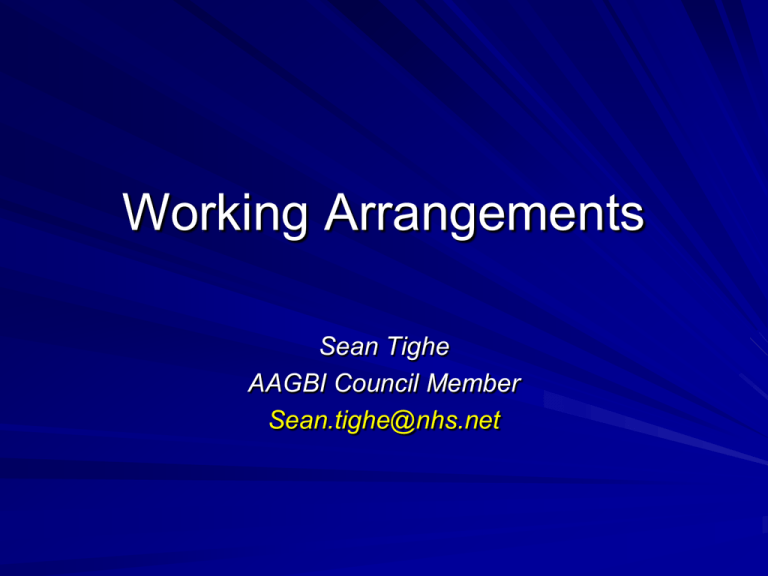
Working Arrangements Sean Tighe AAGBI Council Member Sean.tighe@nhs.net Topical Topics! SPA Study/Professional Leave Acting down Resident on call/ shift working Extra duty payments SPA 2003 Consultant contract; “Typically” 2.5 PA in a 10 PA contract Now down to 1 SPA and 9 DCC in some Trusts! Most SAS have < 1 “session” for personal development SPA How did this happen? – – – – We were not doing it? We let it? We had no choice? We wanted it? How to maximise SPA; – – – – Robust LNC? Robust Colleges? Robust individuals? Robust job planning SPA Action Plan Use the new contract! Do not be intimidated Be robust at job planning Have reliable diary evidence Do not work for nothing Drop commitments if not paid for Use BMA/HCSA Mediation, Appeal Ensure new applicants know the SPA offer – Get REA/RCA support – Discourage applicants if not adequate SPA? Study and Professional leave “Paid” study leave is a contractual entitlement defined in 2003 contract – Max of 30 days in 3 years – With pay and expenses – The amount of expenses paid is not defined – Increasingly restricted budgets Professional leave is discretionary – No obligation to allow any! Study Leave Action Plan Define CEPD requirements at appraisal and in PDP for revalidation – “with expenses” if possible Get CD and MD signed approval of PDP Apply for expenses in advance If expenses refused either; – Refuse to go on S/L and then make formal complaint to CD, MD Clinical Tutor and LNC re revalidation failure – Include complaints in annual appraisal – Encourage colleagues to similar action – Write to RCA President re training and CPD implications – Involve BMA – Obtain trade sponsorship and warn of consequences – Fund it yourself and claim tax relief if doing PP – Formal grievance procedure – County court Professional Leave LNC agreement on allowance – Importance of wider contributions to NHS – Get sponsor to write to CE – Statements from National authorities – Stress individual negotiation with MD Expenses rarely required Professional Leave Action Plan Plan ahead – Include in appraisal/PDP objectives – Give annual estimate to MD in advance – Negotiate with MD in advance If exceed allowance; – – – – – Discuss with CD/MD Annualise/ Flex SPA Annualise DCC Use AL or take unpaid leave Arrange external funding to Trust Acting down Increasing requirement – Usually illness/accident/overslept/Rota confusion! Different to resident on call or 1st on call – Irregular, unpredictable, short notice Must be an LNC agreement in place Base on BMA guidance – – – – Exhaust alternative arrangements, eg locums Executive approval Need another consultant to take over O/C—paid 1 PA 3 x PA or 2 x PA plus time off in lieu, or 2 x time off in lieu – EWTD; 11 hours rest next day, in addition Shift working Must be mutual agreement if appointed to another job plan – Mediate/Appeal if pressurised Base remuneration on 2003 contract May suit some Resident on call Not recommended by CCSC for consultants – – – – Outside 2003 contract Not cost effective Very few PA’s left for elective DCC May suit some! All the time is working time – 4 PA for one night O/C EWTD implications – Must have 11 hours rest, ideally consecutive – Can be delayed and taken “as soon as practicable” Extra Duty Payments Definition; irregular, temporary activity Eg, WLI’s Insist on parity with surgeons and all other consultants If in paid SPA time – Declare when and where the SPA will be done and demand payment, or – Agree to “flex” SPA, without payment, or – Get DCC time back in lieu (Annualisation?)
